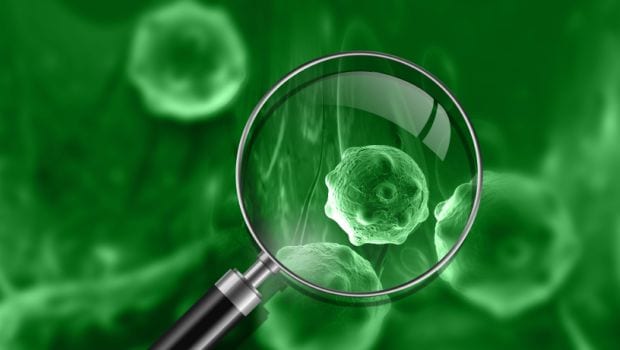Scientists Device Blood Test to Detect Cancer and Locate Tumour

If cancer is painful, the treatment to prevent it is no less pain either. Ask any cancer survivor, no matter how hard he tries he would able to explain you the excruciating pains he went through in the procedure to extract the tumour out of his body and would only wish that nobody else has to go through the same ordeal. A cancer tumour is group of cells, which starts competing with the normal cells of the body for nutrients and kills them in the process of its malignant proliferation. If the tumour is detected early, the spread of this tumour can be curtailed and effective treatments of cancer can ensue, but more often than not, it gets too late to detect these cells. Later the detection of tumour, the painful the removal of it.
A team of scientists have come up with a novel idea to lessen this ordeal to a large extent in the study published in in the journal Nature Genetics. They have developed a new form of blood test, to detect cancer and locate the place in the body where the tumour is growing. This development is especially path-breaking as it will help the cancer patients get rid of painful surgical procedures like biopsies.
These Cancer Blood Tests work by screening for the DNA that is released by the dying tumour cells, flowing which it detects traces of tumour DNA in the cancer patient’s blood. As the normal cells die while competing with the tumor, they release their DNA into the bloodstream, scientists believe that this DNA can prove effective in identifying the effective tissue.

Kun Zhang, professor at the University of California-San Diego in the US, highlighted the significance of detecting the tumour’s location, “Knowing the tumour’s location is critical for effective early detection”.
This new method looks for a particular DNA signature called CpG methylation haplotypes. The unique signature of methylation haplotypes can be used to identify and characterise every tissue in the body.
Integrating both cancer cell and other cells signals, can further help determine the absence and presence of the tumour and study where it is growing and its rate of growth.
For the study, the scientists had put together a database of the complete CpG methylation patterns of 10 different normal tissues of blood, intestine, liver, lung,colon, brain, kidney, pancreas, spleen and stomach. Tumour and blood samples of cancer patients was also investigated for signals of cancer markers and tissue-specific methylation patterns.
[“source-ndtv”]
